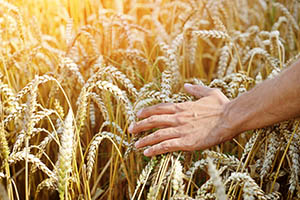
Recently published by the United States Department of Agriculture (USDA) Agricultural Marketing Service, the Strengthening Organic Enforcement (SOE) Proposed Rule is the largest single piece of rulemaking since the National Organic Program (NOP) regulations went into effect. It will fundamentally transform the oversight and enforcement of organic production worldwide.
According to a summary recently shared by the Organic Trade Association (OTA), this rule incorporates 2018 Farm Bill provisions to protect organic integrity, deter fraud and bolster trust in the USDA organic label. It will do this by strengthening organic control systems, improving import oversight and solidifying specific sections of the USDA organic regulations.
More specifically, the proposed rule will:
- Minimize exemptions for organic handlers
- Require use of electronic import certificates
- Enhance accreditation and certification oversight in the following areas:
- Robust inspections: Unannounced inspections, inspector training, trace-back and mass balance audits, and grower groups
- Confirming organic status: Nonretail labeling, standardized organic certificates, data reporting and certifier information sharing
- Overseeing certifiers: 90-Day notification for new offices, equivalency reviews and an adverse action process
Any issues about the proposed rule that are unclear may be submitted as comments as part of the NOP rule-making process. You can submit a comment on the proposed rule by October 5 at the USDA AMS website.
Does the Proposed Rule Apply to Me?
Potentially affected entities may include:
- Individuals or business entities that are considering organic certification
- Existing production and handling operations that are currently certified organic under the USDA organic regulations
- Brokers, traders and importers of organic products that are not currently certified under the USDA organic regulations
- Operations that use non-retail containers for shipping or storing organic products
- Retailers that sell organic products
- Operations that receive or review organic certificates to verify compliance with USDA organic regulations
- USDA-accredited certifying agents, inspectors and reviewers
- Operations that import organic products into the United States
- Operations that export organic products to the United States
How Should I Prepare for Changes When the Proposed Rule Goes Into Effect?
Because the proposed rule requires that an organic fraud prevention plan be included in a certified organic operation’s organic system plan, you may want training or other support. QAI recommends that clients consider enrolling in the Organic Fraud Prevention Solutions program.
